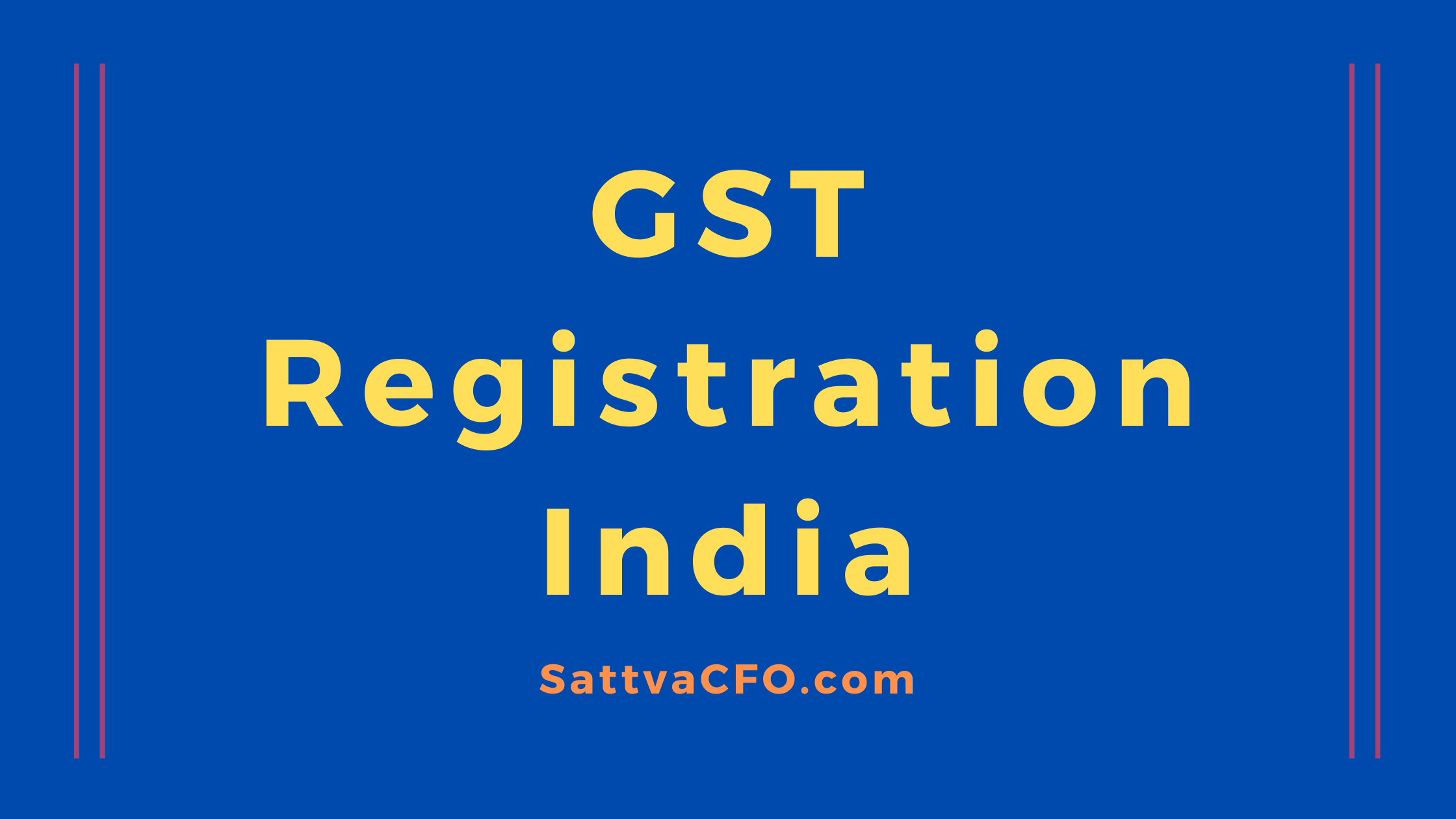GST Registration all over India – Bengaluru, Bhopal, Kolkata
Table of Contents
GST Registration in Bengaluru, Bhopal, Kolkata
Goods and Services Tax (GST) is an indirect tax levied on the supply of goods and services. GST Registration across India.
GST registration is compulsory for businesses having a turnover of more than Rs 40 Lakhs. Certain categories of business have to obtain GST registration without any threshold turnover. Hence, the requirement of compulsory GST registration has to be evaluated on a case-to-case basis.
GST registration usually takes 3-7 working days. Connect with us for a hassle-free GST registration process.
1. GST Overview
“Goods and services tax” (GST) means any tax on the supply of goods, or services or both except taxes on the supply of alcoholic liquor for human consumption.
GST shall be levied and collected by the Central Government and such tax shall be apportioned between the Union and the States in the manner as may be provided by Parliament by law on the recommendations of GST Council.
Supply of goods, or of services, or both in the course of import into the territory of India shall be deemed to be supply in the course of inter-State trade or commerce.
Parliament will formulate the principles for determining the place of supply, and when a supply takes place in the course of inter-State trade or commerce.
2. Benefits of GST registration
The key benefits of obtaining GST registration across India are as follows:
- Composition scheme for small taxpayers
- GST removes the cascading impact of tax
- The online process for payment and filing of GST returns
- Input tax credit features help to offset tax payable and eliminates the cascading effect
- Compliance is lesser in number
- Transparent and real-time updation of GST information
- Helps to regulate un-organized sector above a threshold
- Delivery efficient logistics
3. Components of GST
The components of GST are as follows:
- Integrated Goods and Services Tax (IGST)
- Central Goods and Services Tax (CGST)
- State Goods and Services Tax (SGST)
- Union Territory Goods and Services Tax (UTGST)
4. Which category of taxpayers obtains GST registration?
The following category of person may obtain GST registration:
- Individual
- Hindu Undivided Family
- Company
- Firm
- Limited Liability Partnership
- Association of Persons or Body of Individuals, whether incorporated or not, in India or outside India
- Any corporation established by or under any Central, State, Provincial Act or Government Company defined under the Companies Act
- Any Body Corporate
- Co-operative society registered under any law relating to co-operative societies
5. Who should register for GST?
The following person must obtain GST registration:
- Taxpayer having existing registration on the date of transition to GST
- Businesses having turnover exceeding the threshold limit of Rs 40 Lakhs (lower turnover of Rs 10 lakhs in NE states, J&K, HP, Uttarakhand)
- Person liable under Reverse Charge Mechanism (RCM)
- Person supplying goods between one state to another states or union territory or vice-versa
- Non-resident taxable person
- Casual taxable person
- E-commerce operator
- Person supplying via e-commerce operator
- Person supplying OIDAR services from outside India to a person resident in India
6. Document required for GST Registration
The following documents are required for GST registration:
- PAN card of the applicant
- Aadhar number of authorized signatories
- Certificate of Incorporation for body corporate
- Identity proof and address proof of directors/partners/authorized representatives along with a soft copy of the photograph
- Address proof of the registered office or other places of business
- Bank Account Statement or canceled cheque of bank account
- Letter of authorization or Board resolution for authorized signatory
7. Types of GST registration
The taxpayer can obtain the following types of GST registration:
- Normal taxpayer: Most taxpayer falls under this category. Normal taxpayers obtain registration as such taxpayers is having or expected turnover exceeds the threshold limit of Rs 40 lakhs or 10 lakhs as the case may be.
- Voluntary registration: when the taxpayer is not covered under criteria for GST registration and such taxpayer may obtain registration on a voluntary basis.
- Casual taxable individual: Taxpayer may obtain casual registration for 3 months to supply seasonal, one-time supply, fair or exhibition purposes.
- Non-resident taxable individual: Non-resident taxable person supplying to Indian resident will be liable to registration.
- Registration under the composite scheme: small businesses with turnover below the threshold limit may obtain registration under the composition scheme. Returns and detail requirements are very simple with a low rate of tax, but the input tax credit is not allowed. GST Registration across India.




